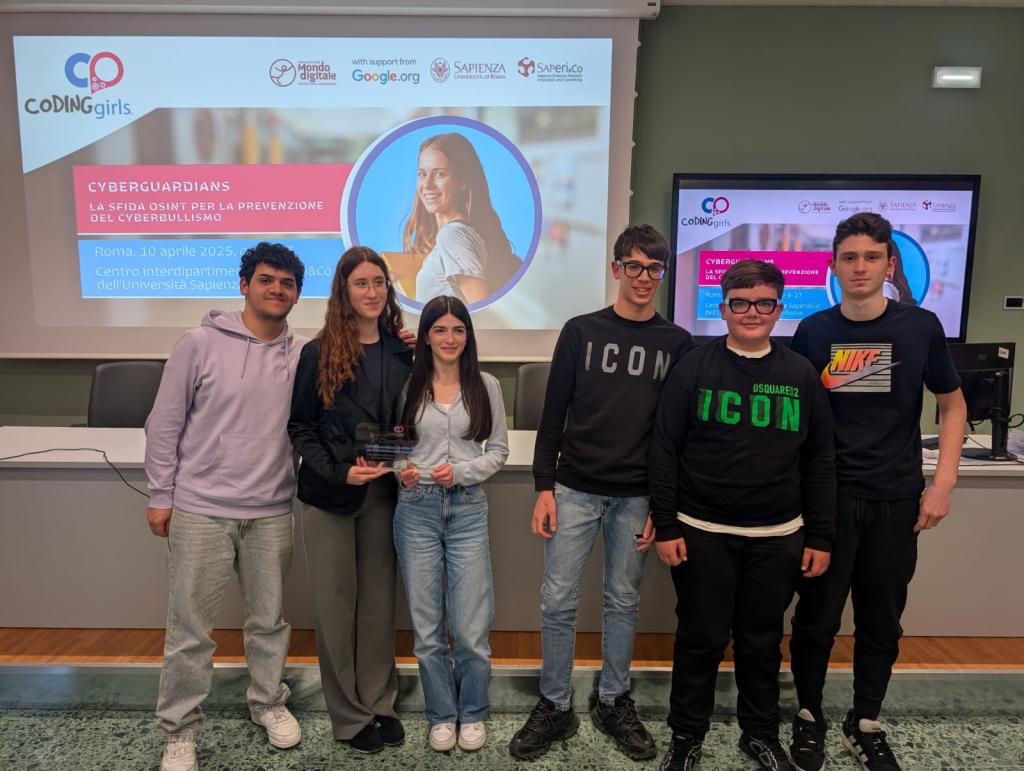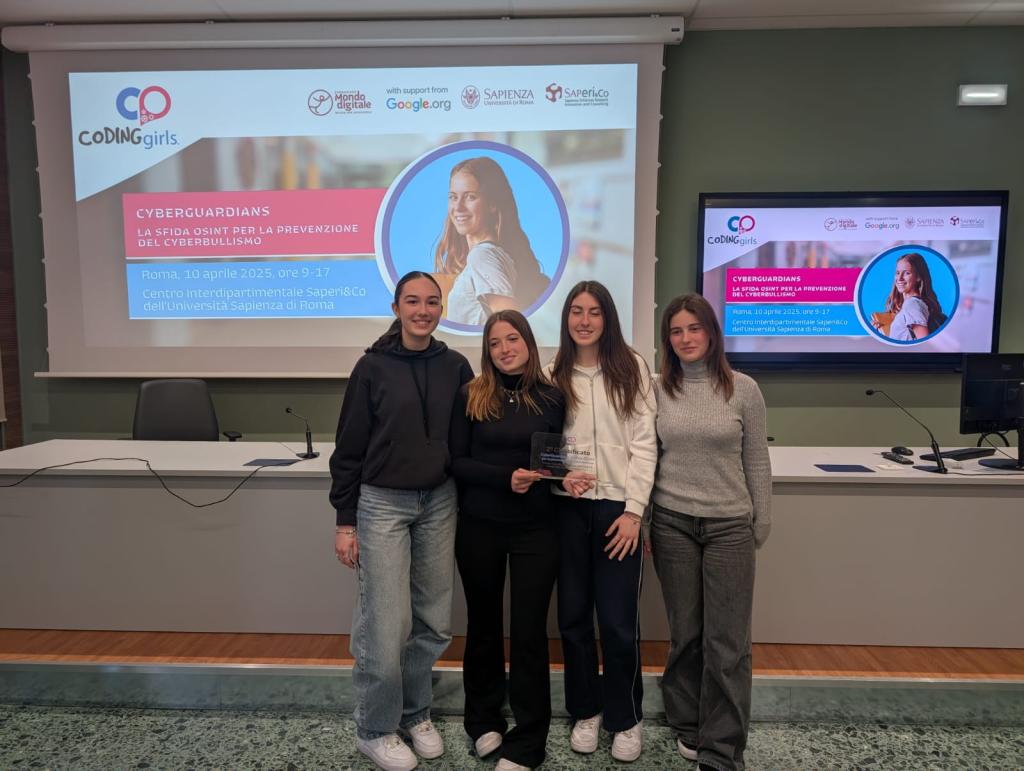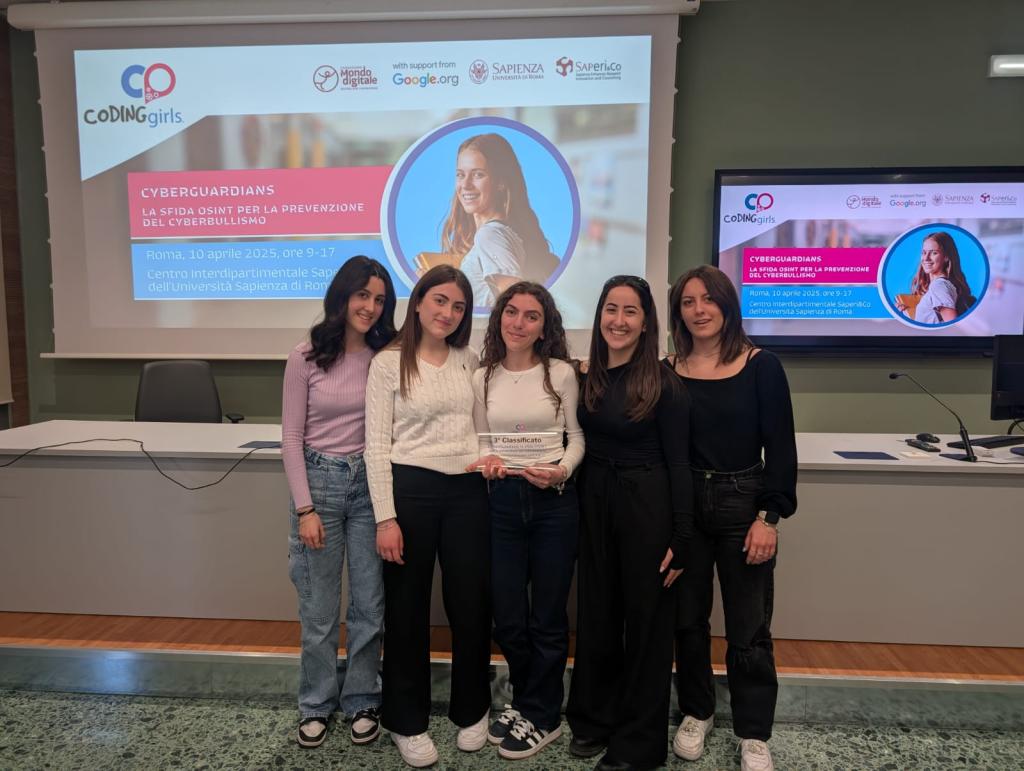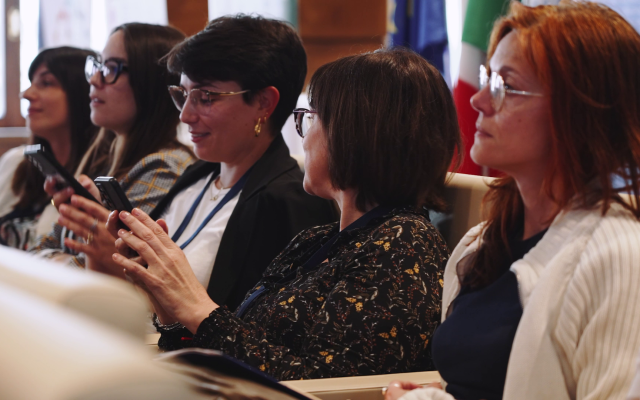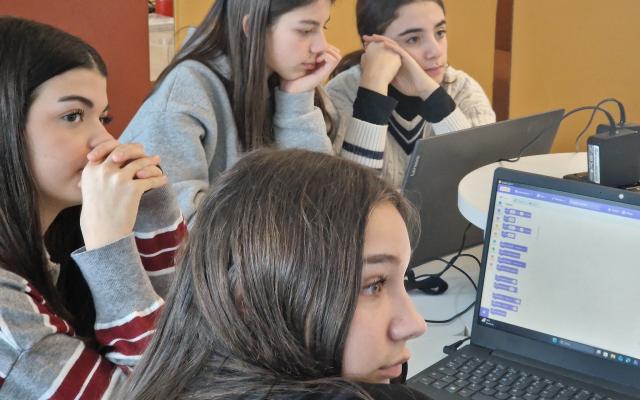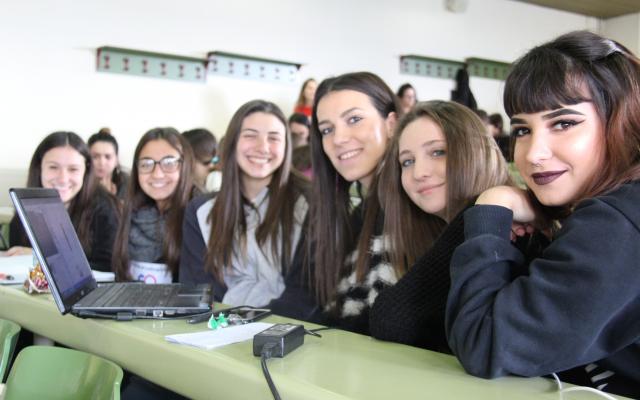CyberGuardians: students against cyberbullying with Osint techniques
‘You acted as a real team, dividing up the tasks and training your investigative spirit’, said Barbara Strappato, senior manager of the State Police, commenting on the initiative CyberGuardians: the Osint challenge for the prevention of cyberbullying. It was one of the final hackathons of the Breaking Barriers project, created to break down the barriers that limit girls' access to STEM subjects, in synergy with Coding Girls and hosted yesterday, Thursday 10 April, by the Saperi&Co Interdepartmental Centre of the Sapienza University of Rome.
Around 90 students from four high schools (Vito Volterra in Ciampino, Da Vinci in Maccarese, Tommaso Salvini in Rome and Giordano in Venafro) transformed themselves into young 007s to identify an anonymous profile responsible for acts of cyberbullying, using Open Source Intelligence (OSINT) techniques, working in teams to collect data and propose concrete solutions to combat a phenomenon that is constantly growing. The project, carried out with the support of Google.org, tackles the six barriers that prevent young women from accessing STEM subjects, identified in the Breaking Barriers research. The aim is to change the erroneous perceptions associated with science and technology, promote positive role models and build learning environments based on peer collaboration, making a concrete contribution to reducing the gender gap in the science and technology sectors.
During the closing conference, Barbara Strappato made several recommendations to combat cybercrime: ‘You must tell your younger friends, but also little brothers and sisters, that if they are victims of cyberbullying they must confide in someone and talk to them about it. In general, don't expose your body online and be jealous of your privacy’. Strappato also mentioned the existence of a specific law, passed in 2017, that protects the victims of online crimes.
According to the first 2024 data from the National Research Council (CNR), a trend is reversing: the number of male victims is growing, but the number of cases of online harassment is increasing in general. Tiziana Catarci, professor at the Department of Computer, Automatic and Management Engineering at Sapienza University of Rome, emphasised the collective responsibility in the fight against cybercrime: ‘Faced with the episodes we are witnessing, we must not be afraid to report them, but we must intervene immediately! Our institution has also done so in the past, not hesitating to report the cases. It is our job, the job of institutions and families, to change the mentality. It is up to us and it is up to you, girls and boys, to dispel stereotypes and fight violence’.
The challenge: digital investigators for a day
How can we expose an anonymous profile that spreads offensive and manipulative content online? How can we recognise the signs of cyberbullying? How can we build a safety net inside and outside of school? These are the questions at the centre of CyberGuardians, the Osint challenge for the prevention of cyberbullying. Divided into 16 teams, the students worked on a real case of cyberbullying, using Osint techniques, image analysis tools, online research and forensic linguistics to investigate the identity and modus operandi of an anonymous Instagram profile: @laveritachebruciadentro.
Guided by FMD trainers and university tutors from Sapienza University of Rome, with the support of the State Police and teachers from the Osservatorio Ipazia, the teams analysed content, hashtags, images and communication style to reconstruct the profile and intentions of the author.
The winners
First place: Venafro Think Team from A. Giordano High School in Venafro
Second place: Qu4ttro K from the Vito Volterra high school in Ciampino
Third place: Phishunters from A. Giordano in Venafro
Three different investigations, but with a common goal: to overcome prejudices and read online behaviour critically, identifying not only the risks but also possible educational responses.
Among the teams' proposals:
- digital education and media literacy courses
- awareness campaigns at school
- reference figures for listening and case management
- cyberbullying response protocols
- greater awareness of the use of social media
A school that educates for digital citizenship
‘CyberGuardians is much more than a competition’, comments Sabrina Lucibello, representative of Sapienza, “it's an experience that helps students discover how technology can be used not only to get information, but also to protect themselves and others”.
The initiative is part of the Breaking Barriers project, dedicated to the inclusion and active participation of the younger generations, with a special focus on digital skills as a lever for conscious citizenship.
